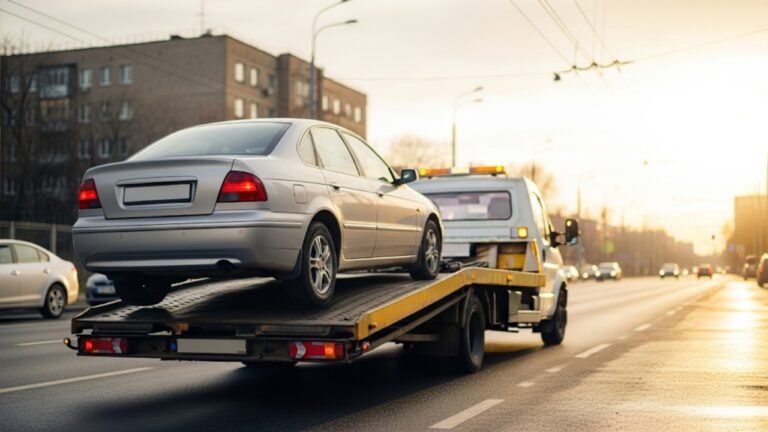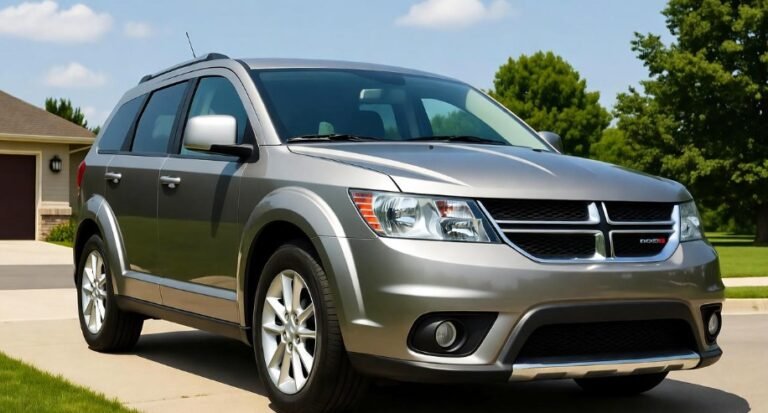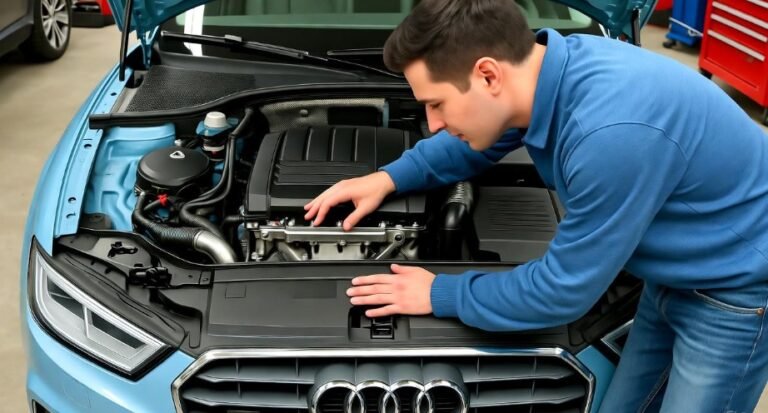Car Air Conditioning Problems

Introduction: When the Cool Air Disappears
There’s nothing quite like hopping into your car on a scorching summer day, flipping on the A/C, and feeling that refreshing blast of cool air. But what if, instead, you’re greeted by warm air, a musty smell, or worse—no air at all? That’s when car air conditioning problems rear their frustrating head.
If you’ve ever dealt with an auto A/C issue, you know how annoying it can be. And it’s not just about comfort. A malfunctioning air conditioning system can signal deeper issues under the hood and even affect your car’s overall health. Whether you’re commuting to work or heading out on a road trip, a failing A/C can turn your drive into a sweaty nightmare.
In this guide, we’ll break down the most common signs of car air conditioning problems, explore what causes them, and share what you can do—whether it’s a DIY fix or time to see a pro. Let’s cool things down and dive right in.
1. Weak or Insufficient Airflow: Something’s Blocking the Breeze

What’s Causing It?
Several culprits can mess with your airflow, and here’s a breakdown:
| Problem | Explanation |
|---|---|
| Blower Motor Failure | If the blower motor stops working or runs at low speed, airflow drops. |
| Clogged Cabin Filters | Dirty filters block the path of cool air and trap dust and allergens. |
| A/C Compressor Issues | If your compressor isn’t working well, the system won’t push cool air. |
| Blocked Vents | Dust, leaves, or small objects may block the A/C ducts, reducing airflow. |
How to Fix It
-
Replace the cabin air filter: This is usually easy and cheap.
-
Test the blower motor: If it’s dead, it’ll need professional replacement.
-
Check the compressor: You’ll probably need a mechanic for this one.
Ignoring this issue can make your car’s A/C system work harder than it needs to, which could lead to bigger, more expensive repairs.
2. Musty or Unpleasant Odors: Something Smells Off
You turn on the air—and bam! You’re hit with a damp, musty smell that makes you want to roll the windows down. Sound familiar? This is another sign of car air conditioning problems that many drivers overlook.
What Causes the Smell?
Usually, it’s due to mold and bacteria building up inside your A/C system. Here’s how that happens:
-
Moisture trapped in the system creates a breeding ground for mold.
-
Dirty cabin filters allow bacteria and dirt to circulate through the vents.
-
Poor drainage from the evaporator coil can leave water pooled inside.
Fix and Prevent It
-
Replace or clean cabin air filters regularly (every 12,000–15,000 miles).
-
Use an A/C cleaner spray to disinfect the system.
-
Run the fan without A/C for a few minutes after use to dry it out.
Breathing in mold spores isn’t just gross—it can be harmful, especially if you have allergies or asthma. So, if you smell something funky, don’t ignore it.
3. Loud or Strange Noises: Your A/C is Talking—Loudly
Normally, your A/C should operate quietly. But if you suddenly hear rattling, squealing, or hissing when you turn it on, it’s a loud cry for help.
Common Noise-Related Issues
-
Worn Belts or Pulleys: A squealing sound often points to a slipping belt.
-
Loose Parts: Rattling may mean something is loose or broken inside the unit.
-
Compressor Trouble: A hissing or clicking sound can come from a failing compressor or leaking refrigerant.
Quick Tip
If the sound increases with engine speed, it might be belt-related. If it’s consistent even when idling, it could be the blower motor or internal component.
What Should You Do?
-
Get your A/C system inspected by a qualified technician.
-
Replace or tighten any loose or broken parts.
-
Don’t keep using it until it’s fixed—it could make things worse.
Ignoring the noise might not only cost you more down the road—it could also lead to complete A/C failure.
4. Inconsistent Cooling: It’s Hot, It’s Cold, It’s Confusing
Another major sign of car air conditioning problems is inconsistent cooling. One minute it’s chilly, the next it’s lukewarm. Sometimes, you only get cold air on high settings—or none at all.
Possible Causes
-
Low Refrigerant: If there’s a leak, your system won’t cool properly.
-
Faulty Compressor Clutch: It may not engage as needed.
-
Electronic Issues: Your car’s climate control might not be signaling the A/C system properly.
Common Symptoms
-
Cold air one side, warm air the other
-
Cold air only when moving, not at idle
-
Air gets warm quickly after being cold
What Can Help?
-
Recharge the refrigerant, but only if the leak is small and manageable.
-
Check the A/C clutch and electrical relays.
-
Use A/C stop leak products carefully—they can clog your system if overused.
This problem can make your drive feel like a climate rollercoaster. It’s best to get it fixed early before it leads to complete A/C shutdown.
5. Your A/C Isn’t Cooling at All: The Dreaded Breakdown
Perhaps the worst scenario—your A/C just doesn’t cool at all. No matter the setting, it only blows hot or outside-temperature air. If this happens, your car air conditioning problems have reached critical mass.
Likely Reasons
-
Severe refrigerant leak: Without refrigerant, the system can’t function.
-
Total compressor failure: No cool air can be generated.
-
Broken condenser or evaporator: These components transfer and cool the air.
Important:
If your refrigerant is leaking, it may also be releasing harmful chemicals into the environment. In some regions, it’s illegal to refill A/C systems without fixing the leak first.
Solution?
-
Professional diagnostics are necessary. These aren’t DIY fixes.
-
A mechanic can use UV dye or leak detection tools to pinpoint the issue.
-
Repair or replace the damaged parts—there’s no shortcut here.
Signs It’s Time to See a Pro
While some car A/C problems can be tackled at home, many require specialized tools and know-how. Here’s when to seek help from a certified mechanic:
-
You see fluid leaks under your car.
-
The air pressure is erratic, not just weak.
-
The system cycles on and off repeatedly.
-
You smell burning or notice smoke.
Auto repair shops that specialize in A/C system repair—like Pro Auto Repair—can inspect, diagnose, and restore your cooling system to full function. It’s better to get things checked early than suffer on the road later.
6. Simple Maintenance Tips to Prevent Car Air Conditioning Problems
The best way to deal with car air conditioning problems is to stop them before they start. With a few simple habits and occasional checks, you can extend the life of your A/C system and enjoy uninterrupted comfort year-round.
Smart Habits for Long-Term Cooling
-
Run your A/C regularly, even in winter. This keeps the system lubricated and prevents seals from drying out.
-
Clean your car’s interior often. Dust and debris easily get sucked into air vents and filters.
-
Don’t ignore early warning signs like odd smells or weak airflow—fix them before they become bigger issues.
-
Switch off A/C before turning off the engine to reduce pressure on the system at startup.
Regular Maintenance Tasks
| Task | How Often | Why It Matters |
|---|---|---|
| Change cabin air filter | Every 12,000–15,000 miles | Keeps airflow clean and unrestricted |
| Check refrigerant level | Annually | Low refrigerant causes poor cooling and damage |
| Clean A/C vents | Monthly | Reduces allergens, mold, and unpleasant smells |
| Inspect compressor & belts | Every 6 months | Prevents loud noises and total system breakdown |
By giving your A/C system a little TLC, you can avoid costly repairs, breathe healthier air, and keep your car cool no matter the season.
7. Quick Checklist: Common Car A/C Issues and What They Mean
Here’s a quick-reference table to help you identify what might be going wrong when your car’s A/C isn’t working as it should.
| Symptom | Likely Cause | Solution |
|---|---|---|
| Weak airflow | Dirty filter, blower issue | Replace filter, check blower motor |
| Musty smell | Mold in vents or filters | Clean vents, replace cabin filter |
| No cold air | Low refrigerant, compressor failure | Recharge refrigerant, inspect compressor |
| Hot air on idle only | Faulty compressor or relay | Professional diagnostic recommended |
| Loud noises | Loose belts or internal damage | Inspect & repair belts, compressor parts |
| A/C turns off randomly | Electrical issue, faulty relay or switch | Test fuses, relays, wiring |
Keep this guide handy and use it as your first step whenever you face a car air conditioning problem.
8. FAQs: Common Questions About Car Air Conditioning Problems
Q1: Why does my A/C blow hot air suddenly?
A sudden blast of hot air can mean your refrigerant level is low, or there’s a leak in the system. Sometimes, it could be a failing compressor or a stuck blend door.
Q2: Is it safe to drive with a faulty car A/C system?
Yes, but it can affect comfort and visibility (defogging). Also, if the issue involves leaks or strange smells, it might pose health risks or damage other car components.
Q3: How much does it cost to fix car air conditioning problems?
Minor fixes like replacing a filter can cost $20–$50. Larger repairs like replacing a compressor or fixing leaks can range from $200 to $1,500+ depending on your vehicle.
Q4: How do I know if my A/C compressor is bad?
Signs include loud noises, the A/C not turning on, inconsistent cooling, or the clutch not engaging. A professional can test the compressor for pressure and voltage.
Q5: Can I fix my A/C problem myself?
You can handle basic fixes like filter changes or cleaning vents. But anything involving refrigerant, compressors, or electricals is best left to a qualified technician.
Q6: Why does my A/C smell like vinegar or mildew?
That’s usually due to mold or bacteria in the system. It could also be a clogged evaporator drain or old cabin filter.
Q7: How long should my car’s A/C last?
If maintained properly, a car’s A/C system can last 8–10 years. Components like compressors or hoses may need attention sooner, especially in hot climates.
Q8: Can low refrigerant damage my A/C system?
Yes. When refrigerant runs low, your compressor may overwork and overheat, which can lead to a complete breakdown.
9. Final Thoughts: Don’t Sweat It—Take Action Early
Car air conditioning problems aren’t just frustrating—they can also be early warnings of deeper mechanical trouble. From poor airflow to weird smells, and from mysterious noises to complete A/C failure, these issues should never be ignored. Whether you’re stuck in city traffic or cruising on a summer road trip, a functional A/C system is vital for comfort, safety, and peace of mind.
The good news? Many problems can be prevented with simple, regular maintenance. And when things go beyond a DIY fix, professional services like Pro Auto Repair can get your system running smoothly again without breaking the bank.
So the next time your A/C blows hot air or makes a funny sound, don’t just roll down the window and hope for the best. Take control, get it checked, and stay cool—literally and figuratively.






